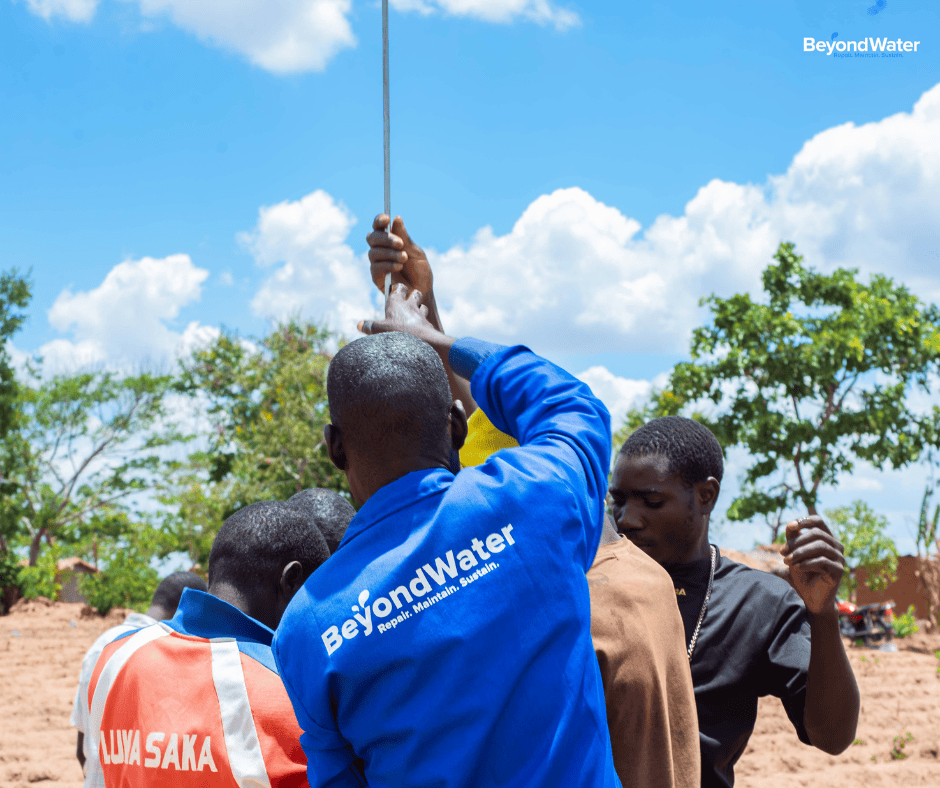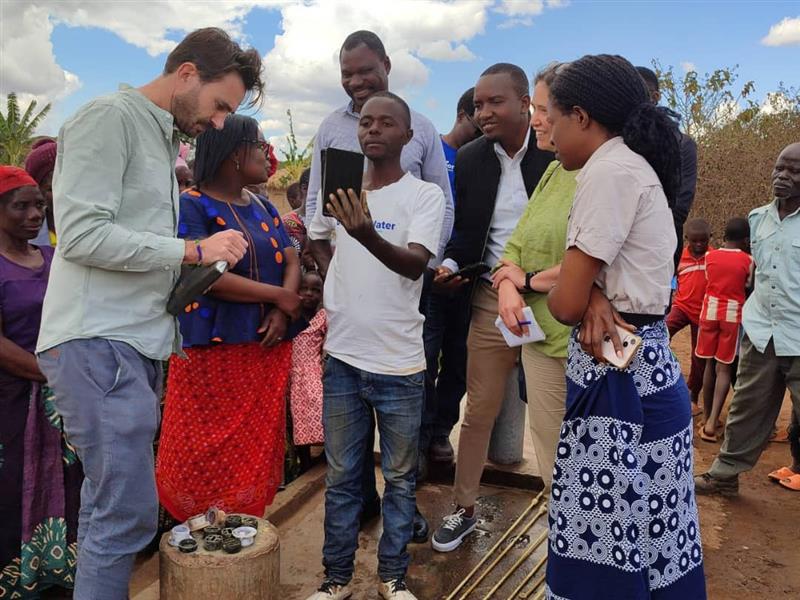In the effort to ensure sustainable and safe water services in rural communities, one term comes up time and again: professionalisation. It’s become something of a buzzword—but what does it actually mean? And more importantly, how do we ensure that professionalisation goes beyond surface-level improvements to drive real, lasting change in rural water delivery?
Defining Professionalisation
At its core, professionalisation means shifting rural water service delivery from informal, ad hoc approaches to structured, reliable systems grounded in accountability, guaranteed services, and long-term sustainability. It implies the presence of trained workers, predictable financing, clear roles and responsibilities, and ongoing performance monitoring. But while the term is widely used, its interpretation can vary significantly depending on who you ask.
A Broad Church: Community-Based Management+
In recent years, some actors have taken an approach known as Community-Based Management+ (CBM+), which focuses on supporting individual community waterpoint committees and area handpump mechanics. The idea is to strengthen existing community-led structures by providing training, tools, and limited oversight—bringing a degree of formalisation to otherwise informal arrangements.
This model is often referred to as a form of professionalisation and in some ways, it is. CBM+ can improve functionality rates, ensure quicker repairs, and introduce accountability mechanisms that were previously absent. It recognises the value of community ownership and builds on it, rather than replacing it.
However, whilst CBM+ is a step forward, it still relies heavily on volunteerism, fragmented service delivery, and limited economies of scale. This model often struggles to achieve the kind of financial and operational sustainability needed to scale or to consistently deliver reliable services over the long term. Furthermore, the limited oversight prohibits a truly accurate picture of costs being realised – a fundamental requirement for any government seeking to compare models for adoption and scale.
A Systemic View: Professionalising the Entire Service Model
At Beyond Water, we define professionalisation more holistically.
True professionalisation is not just about helping mechanics do their jobs better and making it easier for communities to employ their services—it’s about designing and managing an entire system that supports those mechanics, communities, and ultimately, rural water users. That system must be transparent, accountable, and scalable. In our view, professionalisation means:
- Management and Incentivisation of Mechanics: Local mechanics need more than training—they need clear contracts, performance-based incentives, and regular oversight to deliver reliable services.
- Data-Driven Service Delivery: Routine data collection on service functionality, maintenance needs, spare parts usage, and user feedback is critical—not just to respond to breakdowns, but to predict and prevent them. Data also enables better planning and regulation.
- Transparent Financial Reporting: Knowing the real costs of delivering and maintaining water services is essential. Transparency helps build trust with communities, funders, and regulators—and supports cost recovery and financial viability.
- Supply Chain Strengthening: A functioning service requires available, affordable, and high-quality spare parts. Building and supporting supply chains is fundamental.
- Regulatory Alignment and Scalability: Ultimately, professional rural water services must fit into national policies and systems. A truly professionalised model is one that can be adopted by government and scale across districts and regions, aligning with government standards and enabling long-term public oversight.
Professionalisation is not the end goal—it’s the means to achieving reliable, safe, and financially viable rural water services that last. At Beyond Water, our approach to professionalisation—grounded in data, performance management, and system-wide accountability—is already delivering results. The Uptime Catalyst Facility identified Beyond Water as the only viable service provider in our region capable of effectively managing the demands of results-based funding. This recognition reflects not just our technical capacity, but the integrity and transparency of our service model – enabling us to collect more local revenue from water users than the other three assessed service models combined. In addition, major international NGOs such as WaterAid and Good Neighbours International have chosen to partner with Beyond Water, subcontracting us to provide professional maintenance services in the areas where they work—further validating the scalability and effectiveness of our model.
We believe that this is what true professionalisation looks like: a system that attracts diverse investment, earns trust, and delivers consistent, high-quality water services at scale. For more information, please watch our recent presentation to the Rural Water Supply Network.

.jpg)

.png)
